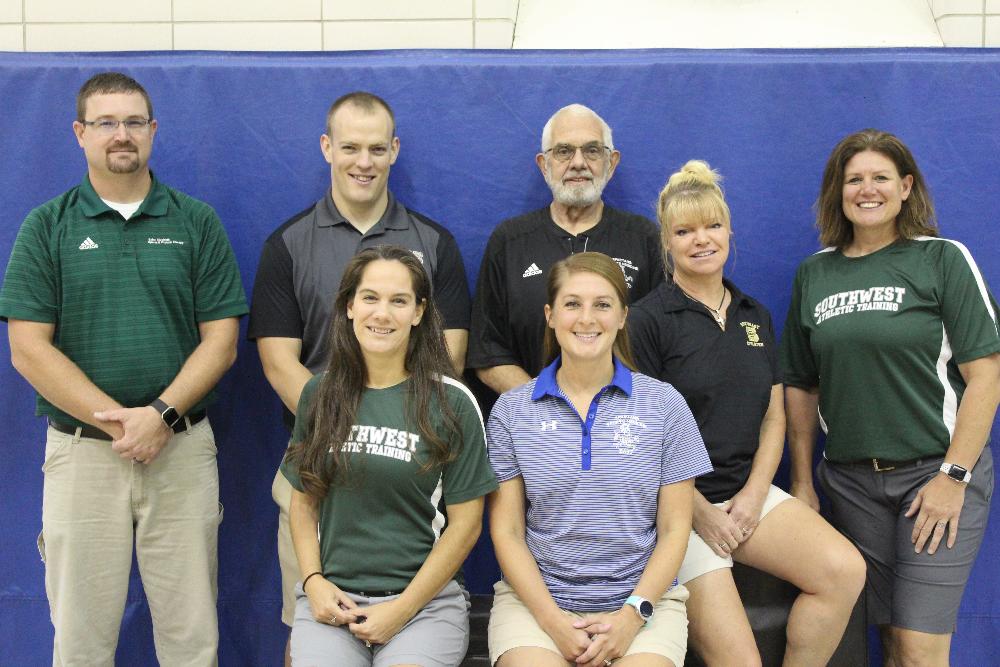Athletic trainers critical to safety of student-athletes
August 21, 2018
Athletic trainers with Lincoln Public Schools are leading the way in a statewide effort to raise awareness about the vital role they play in keeping student-athletes safe. Initiated by the Nebraska State Athletic Trainers’ Association, the initiative is called the “Safety in Football Campaign,” but its message extends to all high school athletics.
“It’s really just trying to spread the message that safety in all athletics starts with the trainers,” said Crystal Kjar, the head athletic trainer at Lincoln Southwest High School. “We’re there purely for the safety of the athlete.”
The two-week campaign kicks off Thursday night at the Lincoln East-Lincoln Pius X football game. The public address announcer will recognize both school’s athletic trainers at midfield and share information about the importance of their work.
Each of the six LPS high schools employs two full-time athletic trainers. They serve more than 3,500 student-athletes annually - nearly one-third of all LPS high school students. Most of what they do is behind the scenes work, much more than what the public typically sees when they attend sporting events - applying tape to student-athletes, handing out water, standing on the sideline in case someone is injured.
According to a study conducted by the American Academy of Pediatrics, the presence of athletic trainers in secondary schools lowers overall injury rates, improves diagnosis and the decision to return to competition, and reduces the risk for recurrent injuries.
“It’s the iceberg effect. What they don’t see is what’s below the water,” said Kjar, who has been an athletic trainer for 18 years. “The injury evaluation, the rehab, concussion management - really, the broad knowledge base that we have.”
Athletic trainers must complete six to seven years of college coursework, much of it the same material as students studying to be physicians. The American Medical Association recognizes athletic trainers as allied healthcare professionals.
Because of that, according to Lincoln Southeast High School Head Athletic Trainer Cindy Benda, athletic trainers can play a critical role for many LPS students who may not have immediate access to healthcare.
“We are a great resource for these student-athletes who might not be able to go see a doctor right away,” said Benda, an athletic trainer for 18 years. “Eventually of course we can offer a referral but that really does help these parents and these kids who think, ‘I don’t have the resources,’ but they do. We’re licensed medical professionals.”
LPS athletic trainers obviously enjoy caring for the health of student-athletes. But there’s more to the job than that, said Mac McQuistion, Lincoln East High School’s head athletic trainer for the past 28 years.
“You can really make a positive impact on kids through the training room,” McQuistion said. “We’re teaching accountability, responsibility, teamwork.”
Published: August 21, 2018, Updated: August 21, 2018

"It’s the iceberg effect. What they don’t see is what's below the water. The injury evaluation, the rehab, concussion management - really, the broad knowledge base that we have."
Crystal Kjar, head athletic trainer, Southwest High School
